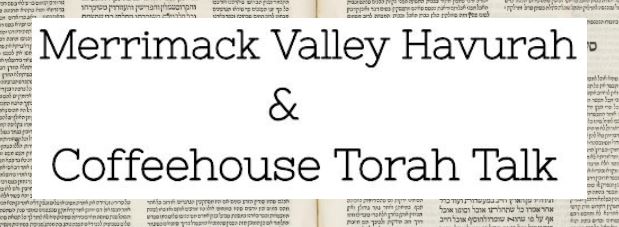Caution! Unlike the other articles here, this is just a draft, a work-in-progress. I am placing this here and asking for constructive criticisms, clarifications, or corrections. If you have any feedback please either mention it over on our discussion forum (Coffeehouse Torah talk) or you can email me at jewishmerrimack@gmail.com

__________
One controversial aspect of kashrut is the the idea of bishul akum, that Jewish people may not eat certain foods which were cooked by non-Jewish people.

This rule is not in the Torah but is expressed in the Mishnah (מִשְׁנָה,) the core work of Judaism’s oral law.

In Nezikin (נזיקין ) the fourth order of the Mishnah, we find the tractate on Avodah Zarah (עבודה זרה ) which deals with the laws of interactions between Jews and the pagan idolaters of that era.
This tractate was written during the time of the Roman occupation of Israel. In this era, Jews often did business with and purchased basic food items from their surrounding non-Jewish, pagan neighbors, and rules were instituted to differentiate the communities.
At this place and time, being non-Jewish was almost synonymous with being a Roman polytheist (pagan.) To a wider extent, being non-Jewish meant any form of paganism in the ancient near east, including the religions of the ancient Greeks, Egyptians, Hittites, Babylonians, etc.

It was understandably important to the Bible-based Jewish community to create a distinction between our people and the surrounding pagan cultures. As such Avodah Zarah sets up rules on when one may or may not, eat foods from them.
In later centuries, when Jews were forced into a diaspora, many found themselves among Christian nations where they were subjected to intense persecution. In these times and places the Mishnaic rules were understood to include Christians.
However, in an independent process, many rabbis later ruled that the Christians were not the same as the pagans of the Mishnah. After all, the intention of Christian theology is to follow monotheism based on the Hebrew Bible. Despite their significantly different interpretation of the Bible, this was enough for mainstream Ashkenazi Jewish law to consider Christians as non-pagans, and instead they should be seen as monotheists.
See for example the writings of R. Menahem Meiri and the Rema, R. Moses Isserles (Darchei Moshe 2 to Orach Chayim 156)
After the Enlightenment and emancipation, when most European Jews became (almost) free citizens of European nations, there was much more interaction between Jewish people and Christians.

Many Jews moved to neighborhoods where they were a minority; they purchased foods from Christian stores and bakeries. It was at this point that the question of avoiding bishul akum, certain foods cooked by non-Jews, again became a major issue.
How did the Jewish community respond to such massive social changes?
In the classic Reform Jewish community they began to see all rules of kashrut as unhelpful and divisive. Soon the Reform movement officially declared that the rules were no longer binding. so for them, the rules of bishul akum no longer were an issue, but only because no rules of kashrut mattered anymore. They held that Jewish people could even eat pork and shellfish.
The Traditional Jewish community held that the spiritual practice of kashrut was eternal and deeply meaningful, and never even considered dropping the practices. But the application of specific rules, in changing circumstances, sometimes led to different communities interpreting and applying the rules differently.
While Ashkenazi Orthodox Jewish communities often held by the above stated views of the Meiri and Rema, they also held that one must nonetheless apply the rules of bishul akum to foods from non-Jewish sources. So, for food products baked from certain ingredients, they developed a compromise position of sorts, in which such foods cooked by non-Jewish people would be acceptable as kosher, as long as a Jewish person was involved at some step in the cooking process, even as minimally as lighting the fire.
Sephardic Jews generally held that this Ashkenazi view was an erroneous leniency, and so do not hold by it. Thus, for certain foods, they will not eat these foods unless a Jewish person is more involved in the cooking or baking process.
In later years, some rabbis within the Sephardic Open Orthodox, and Conservative (Masorti) Jewish communities have taken a new look at the idea of bishul akum [this next section to be written.]
_____________________________
